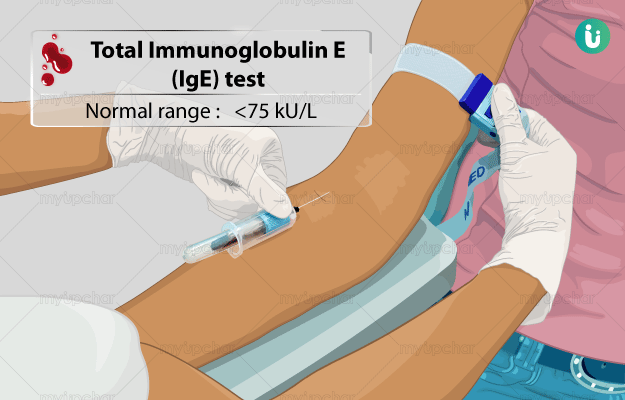What is Total Immunoglobulin E (IgE) test?
A total IgE test is an allergy test, which is performed to measure the overall level of IgE in the blood.
Whenever your body is exposed to foreign substances - microbes or other allergens (allergy-causing substances) - it produces specific proteins called immunoglobulins or antibodies to fight against it. IgE is a type of antibody produced during allergic responses.
Soon as you get exposed to an allergen, your body will produce IgE antibodies against that specific allergen. These antibodies bind to specialised white blood cells, causing the release of various chemicals, including histamine. It is histamine that is responsible for the symptoms seen in an allergic reaction.
Some of the common allergens include pollens, animal dander and dust. An individual may also react abnormally to certain food items, such as shellfish, fish, milk, egg, soy, wheat or peanut, causing an IgE-mediated food allergy.
A total IgE test helps in screening and detecting allergic diseases. However, the test only checks for an allergic response, not the substances a person is allergic to.






























